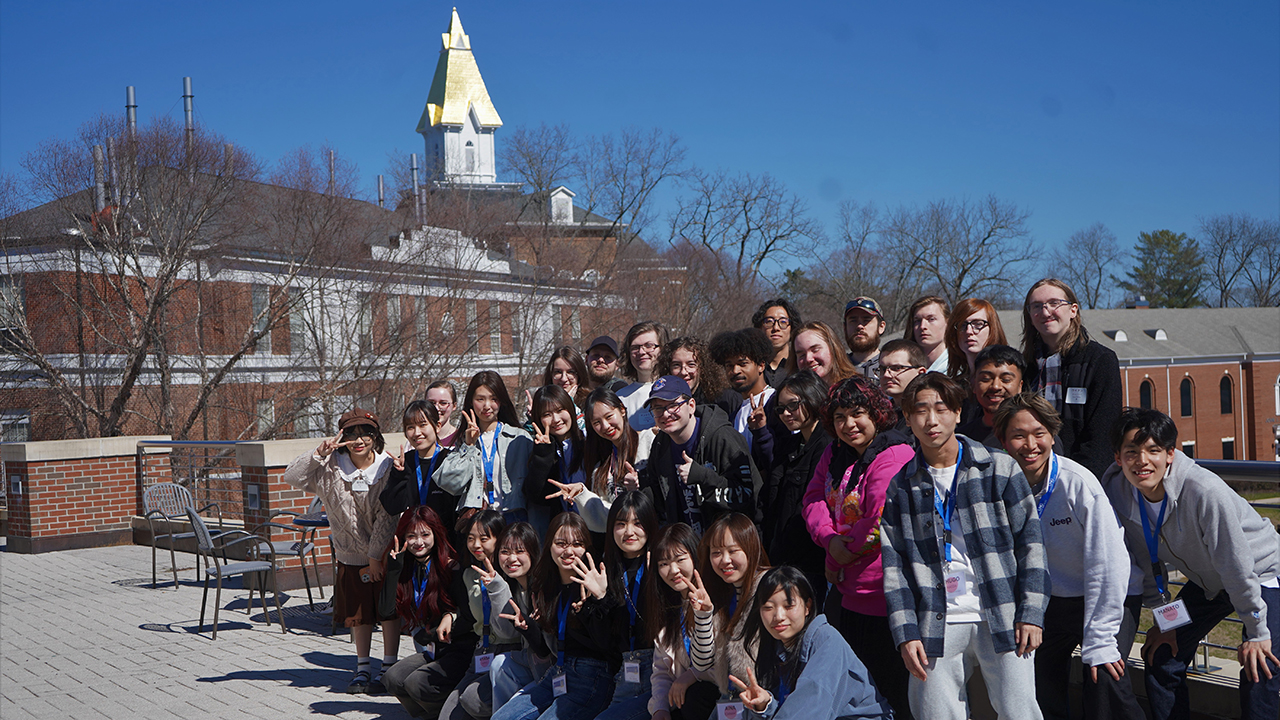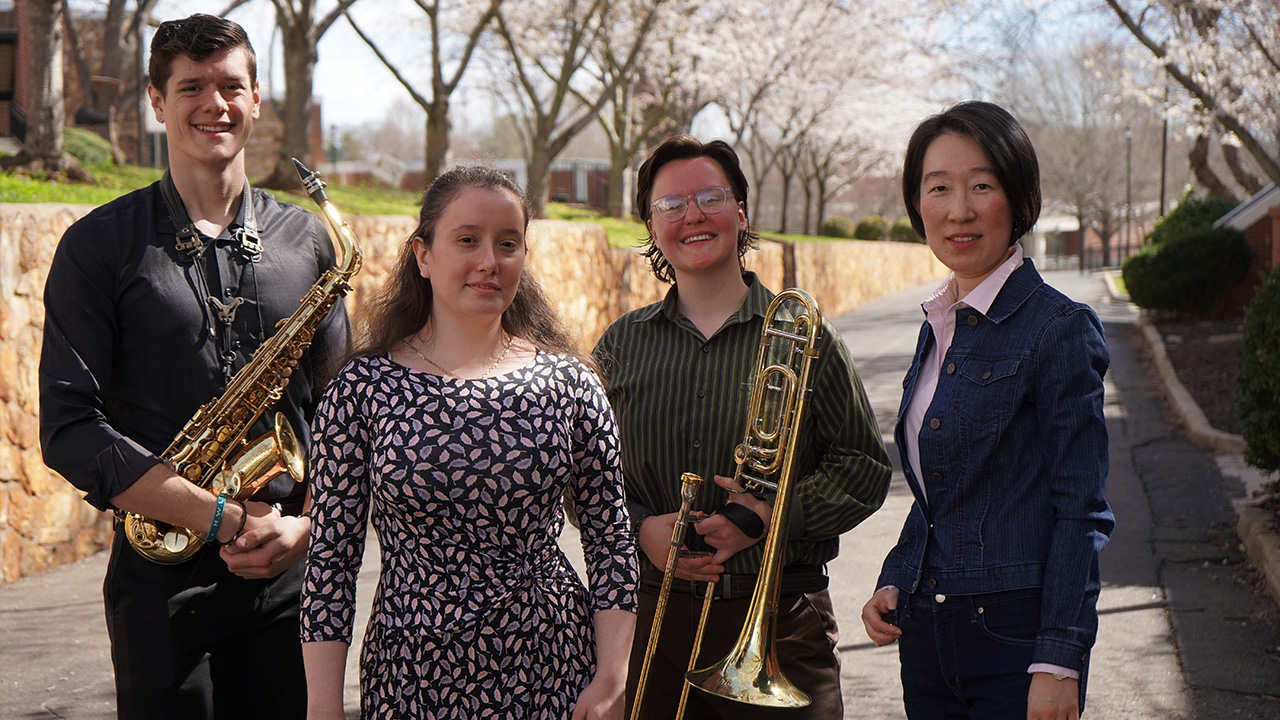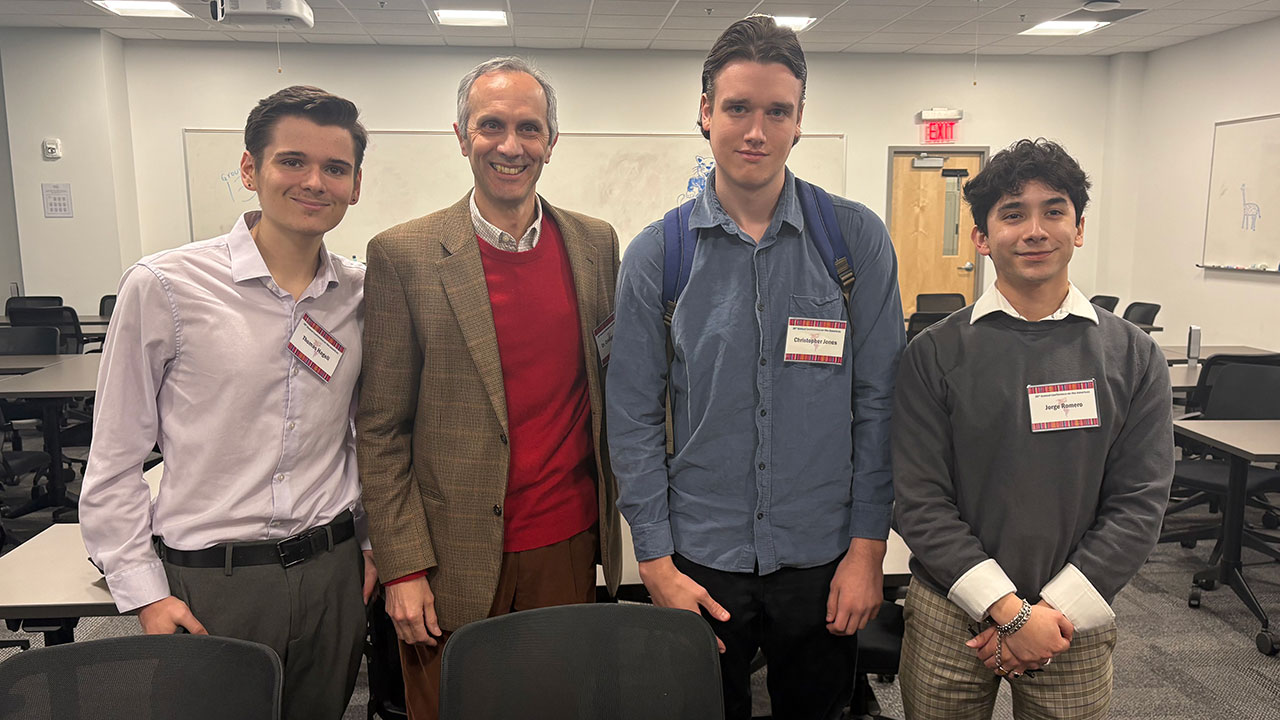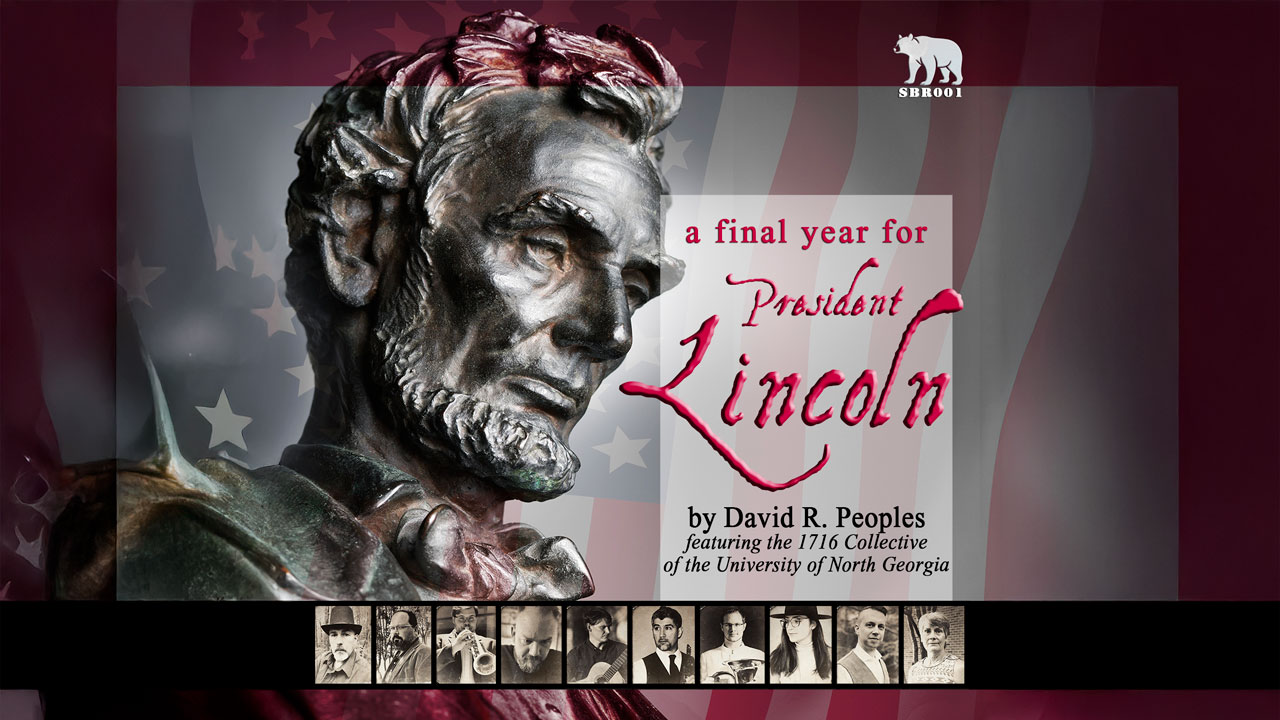Civic Action Plan proposes guidelines for community engagement

Article By: Staff
For the second year in a row, the University of North Georgia (UNG) Food Pantry on the Gainesville Campus has provided supplies for a "Friendsgiving" meal to UNG students, faculty or staff in need. And it was possible thanks to two grants from Kroger, turkey donations by Longstreet Café, and the partnership between UNG and the Georgia Mountain Food Bank (GMFB), which helps address hunger in northeast Georgia.
"The partnership allows the Food Pantry to buy food at 16 cents a pound," said Dr. Carly Redding, associate professor of sociology and human services at UNG. "Therefore, the money goes much further, allowing the food pantry to carry more products. It also leaves money for UNG to buy hygiene items and perishable food."
Throughout the year, GMFB supplies the UNG Food Pantry with its goods to help feed members of the campus community who experience food insecurity. During the summer, the food bank also teams up with UNG's Summer Food Service Program to help feed children from low-income areas in northeast Georgia.
 |
|
Georgia Mountain Food Bank teams up with UNG's Summer Food Service Program to help feed children from low-income areas in northeast Georgia. |
The partnerships, just two examples of how UNG engages and supports the community, are among the commitments spelled out in UNG's new Civic Action Plan. The plan is an initiative developed by Campus Compact, which is a national organization composed of 1,100 college and universities throughout the country.
"We are committed to being good members of the community and being an anchor institution of these communities," said Dr. Andrew Pearl, director of academic engagement at UNG.
Pearl said Campus Compact, with its mission to promote the public purposes of higher education, approved UNG's Civic Action Plan earlier in the fall 2018 semester.
Devising the Civic Action Plan was not a new task for UNG officials, but it was a lengthy and detail-oriented one. A committee of 14 UNG officials from all disciplines and different campuses spent a year
"hammering out the fine details" of the plan, Pearl said.
"We spent a lot of time talking about how different civic commitments are contextualized at UNG," he said. "And we made a series of recommendations and goals for UNG that includes everything from continuing to establish and strengthen our community-campus partnerships to creating an environment that is supportive of faculty, staff and students interested in this commitment."
He also said the Civic Action Plan gives the university a road map for its future strategic plan and serves as the application for renewal of UNG's Community Engagement Classification from The Carnegie Foundation for the Advancement of Teaching. Pearl explained UNG is applying for the 2020 cohort of the Carnegie classification. UNG is one of only two public universities in Georgia to hold the prestigious classification from The Carnegie Foundation, which promotes service-learning and community partnerships and the many ways to enhance the educational experience.
"Carnegie helps us tell the story of who we are," Pearl said. "And it's in our strategic plan."
For more information, visit UNG's Civic Action Plan website.



